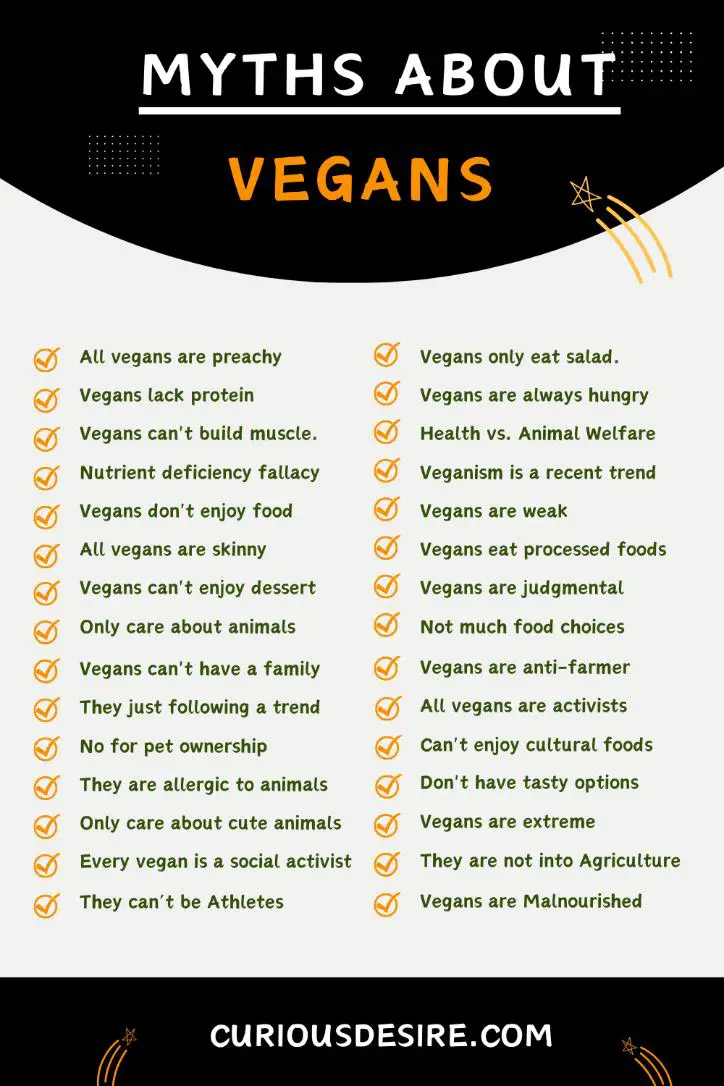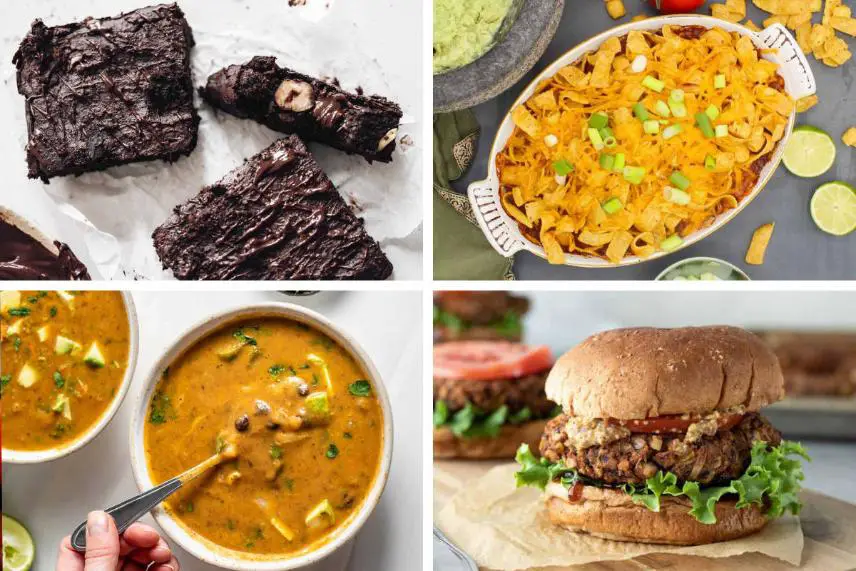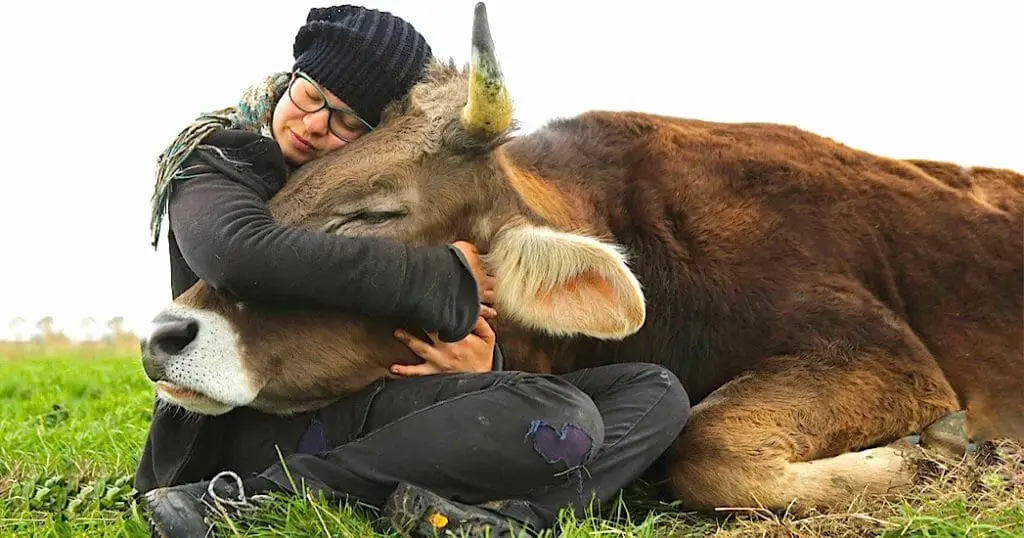Veganism has become more popular lately because people care about health, animals, and the environment in recent times.
But with this popularity, many wrong ideas have come up, making it confusing to know what being vegan means.
In this article, we’ll bust 34 common myths about vegans. We want to help you understand what’s true and what’s not when it comes to vegan lifestyles.
Here are the top 5 most common myths about vegans:
- All vegans are preachy.
- Vegans only eat salad.
- Vegans lack protein.
- Vegans are always hungry.
- Vegans can’t build muscle.
[toc]
Vegans Myths FAQs
1. What do scientists say about vegans?
Scientists generally acknowledge that a well-planned vegan diet can provide the necessary nutrients for a healthy life.
Research suggests that a vegan diet can offer various health benefits, including a lower risk of heart disease, certain cancers, and type 2 diabetes.
However, like any diet, it requires careful attention to ensure adequate intake of essential nutrients, such as vitamin B12, iron, calcium, omega-3 fatty acids, and protein.
2. Who is a true vegan?
A true vegan is someone who abstains from the consumption of animal products and, to the best of their ability, avoids using or supporting any products derived from animals.
This commitment often extends beyond diet to include other aspects of daily life, such as clothing, cosmetics, and household products.
3. Did you know vegan facts?
- Vegan diets can contribute to environmental sustainability by reducing the environmental impact associated with animal agriculture.
- Many common foods are accidentally vegan, including Oreos, certain varieties of chips, and various types of pasta.
- Veganism is not a recent trend; historical figures like Leonardo da Vinci and Mahatma Gandhi are believed to have followed plant-based diets.
4. Do vegans look healthy?
The appearance of health varies among individuals, regardless of their dietary choices. A well-balanced vegan diet can contribute to overall health, including clear skin, healthy hair, and a fit physique.
However, individual health outcomes depend on various factors, including genetics, lifestyle, and overall diet quality.
5. What surprising things are vegan?
Surprising vegan items include certain alcoholic beverages, such as beer and wine, which may use animal products in their processing.
Additionally, some candies, processed foods, and even beauty products may contain animal-derived ingredients.
6. Were we born vegan?
Humans are omnivores, meaning our bodies are adapted to consume both plant and animal products. However, whether we are “born vegan” is a complex question.
Infants are biologically adapted to consume human milk, which is inherently vegan, but as they grow, their nutritional needs change, and a variety of foods, including animal products, become suitable options.
7. Can humans survive without meat?
Yes, humans can survive and thrive on a well-planned vegan diet that includes a variety of plant-based foods to ensure adequate intake of essential nutrients.
Many health organizations, including the American Dietetic Association and the British Dietetic Association, acknowledge that appropriately planned vegan diets are suitable for all life stages.
8. What are some interesting facts about a vegan diet?
- A vegan diet tends to be rich in dietary fiber, antioxidants, and various vitamins and minerals.
- Plant-based diets have been associated with a lower risk of certain chronic diseases, such as heart disease and type 2 diabetes.
- Vegan diets can be diverse and culturally inclusive, with various cuisines offering delicious and plant-based options.
9. Who was the first known vegan?
The term “vegan” was coined in 1944 by Donald Watson, the founder of the Vegan Society. However, historical figures, such as Pythagoras and Leonardo da Vinci, are often cited as early advocates of plant-based diets.
10. How many true vegans are there?
Estimating the exact number of true vegans globally is challenging. The number has been increasing in recent years due to growing awareness of ethical, environmental, and health concerns associated with animal product consumption. However, it remains a minority lifestyle.
11. Could you ever date a vegan?
As a machine learning model, I don’t have personal preferences or the ability to date. However, the compatibility of individuals, regardless of their dietary choices, depends on shared values, mutual respect, and open communication.
Many people successfully navigate relationships where one partner is vegan and the other is not, finding common ground and understanding each other’s choices.



